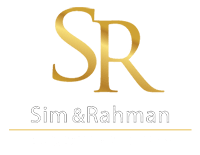Estate planning has evolved from simply passing down assets to creating long-term strategies that grow and preserve wealth across generations. Today, high-net-worth individuals and legacy-focused families are turning to investment-driven estate plans—blending wealth transfer with smart, sustainable investing. These plans are designed not only to protect assets but to actively multiply them through diversified portfolios, strategic asset allocation, and risk-managed growth. In this article, we explore how incorporating investment strategies into estate planning can serve as a cornerstone for building lasting generational wealth.
What Is Investment-Driven Estate Planning?
Investment-driven estate planning is a forward-looking approach that combines estate planning with long-term investment strategies to grow and protect wealth across generations. Unlike traditional estate planning, which typically focuses on preserving and distributing assets, this method emphasizes active wealth accumulation, compounding returns, and inflation protection.
Rather than allowing assets to sit idle, investment-driven plans utilise structures such as family trusts, holding companies, and private foundations to manage diversified portfolios aligned with the family’s financial goals and core values. This integrated approach allows families to not only pass on wealth but also build a lasting financial legacy that adapts to market changes and supports future generations.
By embedding strategic investments into the estate planning process, families can ensure that their wealth continues to grow, evolve, and sustain their legacy well beyond a single generation.

Why Investment Strategy Matters in Estate Planning
Incorporating a well-structured investment strategy into estate planning is essential for building sustainable, long-term wealth. Rather than letting assets sit idle or lose value, strategic investing helps ensure that an estate continues to grow, generate income, and preserve its real value over time.
Capital Growth:
Investments in diversified asset classes—such as equities, real estate, and private funds—allow the estate to grow in value, creating a larger legacy for future generations.
Intergenerational Equity:
A clear investment strategy ensures that each generation not only inherits wealth but also a framework for managing and growing it, fostering financial literacy and responsibility.
Inflation Hedge:
Unlike cash or static holdings, investment assets help protect against inflation, preserving the estate’s purchasing power over decades.
Income Streams:
Dividend-paying stocks, rental properties, and fixed-income instruments can provide passive income to support heirs’ lifestyles, educational needs, or charitable initiatives.
By aligning estate plans with a dynamic investment strategy, families can maximise the impact of their wealth, support multigenerational goals, and create a resilient legacy that endures economic shifts.

Popular Investment Vehicles Used in Estate Planning
High-net-worth families in Malaysia often incorporate a variety of investment vehicles into their estate plans to achieve long-term growth, income generation, and legacy preservation. These assets are frequently held through trusts, foundations, or holding companies to enhance control, ensure structured succession, and optimise tax efficiency.
- Real Estate Portfolios: A staple in Malaysian estate planning, property investments offer capital appreciation and steady rental income, making them ideal for intergenerational wealth.
- Unit Trusts & Mutual Funds: Professionally managed and diversified, these are accessible options that provide exposure to a range of markets, ideal for families seeking balanced growth without direct oversight.
- Private Equity or Family Business Ownership: Holding a stake in operating businesses helps preserve the family’s entrepreneurial legacy while generating substantial long-term returns and employment opportunities for heirs.
- REITs or Bonds: For families with a lower risk appetite, real estate investment trusts (REITs) and government or corporate bonds offer stable, conservative growth with predictable income streams.
- Shariah-Compliant Investments: Muslim families can align their estate plans with Islamic principles using sukuk (Islamic bonds), halal equity funds, and Shariah-approved real estate—often structured through hibah trusts or Islamic foundations (waqf).

Conclusion
An investment-driven estate plan empowers families to go beyond simply passing down assets—it creates a sustainable and strategic system for growing and managing wealth over time. By integrating thoughtful investments with long-term estate structures, families can ensure their legacy is protected, enhanced, and aligned with their values. When crafted carefully, this approach becomes more than a financial plan—it becomes a blueprint for multigenerational success, responsible stewardship, and enduring impact.
Ready to future-proof your estate with a growth-driven investment strategy? Sim & Rahman can help you integrate wealth management, legal structuring, and legacy planning into a seamless estate solution. Contact us today.




